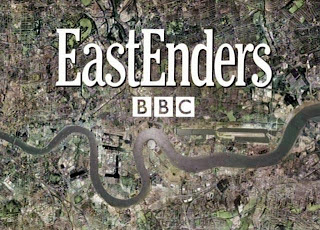3: DEFINE the conventions of
each genre e.g. period; crime; soap
opera; comedy, then give clear examples.
(Give up
to 3 examples; do they challenge or conform to the conventions of the genre?)
Period Drama: REALIST NARRATIVE
A period or costume drama is set in a particular
historical period of time. The costumes, props and locations will be accurate
to the era that the narrative is set in. If a show was set in the Victorian
era, then we would not see any technology (digital watches, computers, televisions
or cars). The costumes would include long dresses, the props would include
pocket watches and the transport would be a carriage. The dialogue would use
the words and the way they used to speak back then.
Examples: Downton Abbey (ITV1), The Tudors (BBC),
That 70’s Show (Fox)
A
soap opera is sometimes called a ‘soap’, it is an ongoing serial that does not
end. The endings are always ‘open’ with stories spanning several episodes. They
are normally broadcast for half an hour on weekdays, some soaps are broadcasted
five times a week. The narratives can range from real life topical issues or
about complex relationships between family and friends. Soaps have lots of
narratives, which run at different rates, some storylines start to develop and
others come to a head. Most Soaps follow the lives of a group of characters who
live or work in a particular place, or focus on a large extended family. The
storylines follow the day-to-day activities and personal relationships of these
characters.
Example:
Eastenders (BBC), Coronation Street (ITV), Hollyoaks (Channel 4)
This
genre is set in the future and involves science and technology, space, parallel
universes, time travel, aliens and paranormal abilities, such as physic powers
or mind control. The characters may be aliens, cyborgs, mutants, humanoid
robots or robots. The props may include ray guns or teleportation machines and
other not-yet invented technology. Sci fi is set in the future, sometimes on
earth or a fictional planet. The narratives may have realistic storyline
(relationships) but the main story will be an anti realistic narrative. It may
include flashbacks, dream sequences or a non-linear storyline. Sci fi is very
imaginative.
Examples:
V (Sci fi channel), Doctor Who (BBC), Deep Space Nine – part of Star Trek (Sci
fi Channel)
This genre will involve a crime which is either
being planned, has been committed or is about to be committed. The characters
will include a villain (commits crime), a hero who solves the crime (normally a
police detective or a forensic scientist), there may be a victim (someone who
gets murdered, attacked, mugged) or it could be a crime against property. It normally
has a car chase, action, guns and violence, however British crime programmes
are more about detective work. The settings/ locations can be urban (city) or
rural (the countryside).
The typical plot centers around a crime, the
story usually follows those who solve the crime and the crime is usually
solved, by the end of the programme. The narrative will be restricted because
they want the audience to know as much as the hero and the ending will be
closed. This follows the Todorov theory of: Equilibrium
– everything is normal at the start; Disruption – something happens: a crime, a
mystery; Recognition – people see something has happened and react to it; Reparation
- attempt to repair – people try to put things right, solve the crime, catch
the criminal; Resolution - everything is solved, worked out, fixed, and there
is a new equilibrium
Sub genres include: Detective Fiction
(whodunit), Legal Thriller, Courtroom Drama and Hard Boiled fiction.
Examples: CSI (Bravo) Inspector Morse (ITV)
Midsomer Murders (ITV), Miss Marple (ITV), The Wire
A comedy is made to make the audience laugh. The
narrative will involve a funny situation, jokes and funny characters. The
narrative is unrestricted so that the audience know when things are going
wrong. The main characters will have weird, funny character traits or may act
in a bizarre way. The endings are always happy and are closed.
Examples: The Big Bang Theory (Channel 4),
Citizen Khan (BBC1), Inbetweeners (E4)





No comments:
Post a Comment